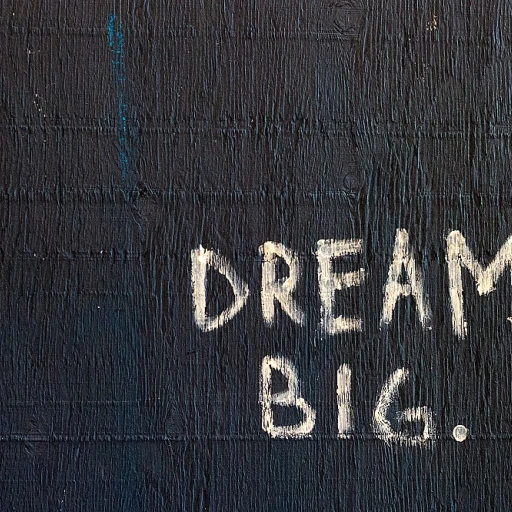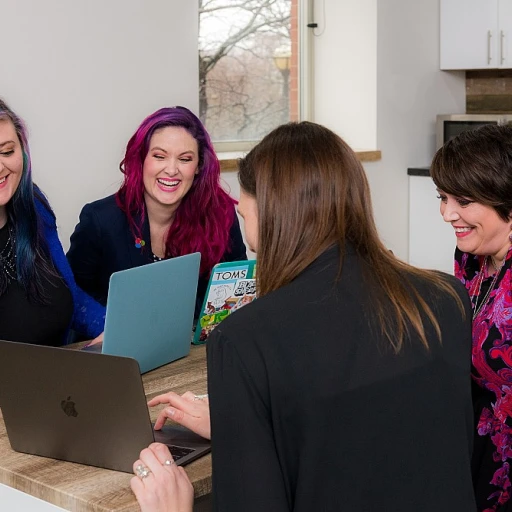Understanding the Basics: Common Interview Questions
Getting to Know the Candidate: Frequently Asked Questions
In the competitive landscape of job hunting, understanding the dynamics of HR interviews is crucial for both candidates and interviewers alike. One of the core elements of this process is the common interview questions that help to unveil the candidate's potential and fit for the position.
When stepping into an interview, candidates often anticipate questions like "Can you tell me about yourself?" or "What are your strengths and weaknesses?" These inquiries may seem straightforward, but they demand a level of introspection and self-awareness that challenges many. Consider these questions as a gateway to present a polished narrative of where you've been professionally and your alignment with the company’s goals.
Another staple in the interview repertoire is the question, "Why do you want to work here?" It's about more than pleasing words on a resume. It requires candidates to convey a genuine interest in the company’s mission and how their personal values align with it. This serves as a precursor to exploring deeper into the company culture and whether they'll thrive in it, as further discussed in our upcoming sections.
Similarly, "Where do you see yourself in five years?" is another common question. Instead of giving vague or overly-ambitious answers, the key is to express a realistic vision that aligns with the potential growth within the company. These foundational questions set the stage for a more exhaustive understanding, leading to discussions on long-term goals and future prospects.
For those looking to refine their interview preparedness and gain insights into handling these common questions effectively, you might find our guide on
Mastering HR Interviews: Tips for Success particularly helpful. This resource offers a detailed breakdown of strategic approaches to handling various interview scenarios.
Behavioral Questions: Assessing Soft Skills
Evaluating Interpersonal Abilities Through Behavioral Queries
Behavioral questions are a staple in HR interviews, providing key insights into a candidate’s interpersonal abilities and how they handle various situations. These questions are designed to assess how an applicant reacts in specific scenarios, focusing on their soft skills such as teamwork, problem-solving, and leadership capabilities. For instance, a common behavioral question might be, "Can you tell me about a time when you had to deal with a difficult coworker?" This question probes into the candidate’s skills in conflict resolution and diplomacy.
These types of questions often follow the STAR method (Situation, Task, Action, Result), encouraging candidates to provide specific examples that demonstrate their effectiveness in past experiences. As they recount their stories, interviewers gain insight into their thought processes and how they’ve applied their skills in real-world settings. Mastering the ability to confidently answer behavioral questions is crucial for any candidate aiming to leave a lasting impression during their HR interview. For those looking to refine their approach to these queries, our guide on
mastering HR interview skills for success can be an invaluable resource, offering strategies to effectively showcase your interpersonal skills during interviews.
By preparing for these questions, candidates not only highlight their previous experiences but also demonstrate their readiness to contribute to a new team environment. Thus, understanding the essential techniques for handling behavioral questions can significantly enhance your candidacy in the eyes of prospective employers.
Technical Questions: Demonstrating Job-Specific Skills
Unraveling the Mysteries of Technical Interview Questions
In the realm of HR interviews, technical questions serve a pivotal role in gauging a candidate's ability to perform specific job-related tasks. These questions are not about your general personality traits but instead focus on your expertise and skills relevant to the position. While common and behavioral interview questions can help lay the groundwork and assess your soft skills, technical questions dig deeper into what you bring to the table in terms of technical prowess.
Candidates might be asked to solve a problem on the spot, demonstrate their proficiency with certain tools or software, or explain their past experiences using specific technologies. For instance, if you're applying for an HR analytics role, prepare to discuss your proficiency with data analysis software. The key is to articulate how your technical skills can contribute to the company.
Keep in mind that this is an area where preparation can make all the difference. Dive into the details of the job description and identify the technologies and skills emphasized by the employer. Lean on resources and best practices from
HR job interview preparation to polish your responses and anticipate what technical skills might be discussed during your interview.
Technical interview questions are your opportunity to showcase your capability to perform the tasks that are crucial for the job. Demonstrating confidence and expertise in this section can significantly boost your candidacy, distinguishing you from other applicants. The goal is not just to answer these questions accurately but to also communicate how your skills specifically benefit the company's needs and goals.
In essence, acing the technical questions is not just about displaying what you know, it's about linking that knowledge to tangible outcomes for the prospective employer. Equip yourself with this understanding, supported by relevant examples and achievements, to truly stand out in your HR job interview.
Cultural Fit: Questions About Company Culture
Assessing Compatibility with Company Values
In previous discussions, we've delved into questions that probe for technical prowess and assess behavioral traits. Equally crucial in HR interviews are questions designed to uncover an applicant’s alignment with the company’s values and culture. These inquiries aim to gauge whether a candidate would integrate smoothly into the organization’s social environment and share its core principles.
Cultural fit questions often focus on how you perceive and react to various workplace scenarios. Interviewers might ask, "Describe a work environment in which you thrive," or, "Can you give an example of how you handled a stressful team situation?" Such questions serve to reveal your preferences for workplace dynamics and your approach in contributing to team cohesion.
Sometimes, cultural fit questions can probe deeper by exploring your interests and values. Queries such as, "What motivates you to work here?" or "Which of our company values resonates most with you, and why?" not only assess if your personal values align with those of the organization but also gauge your level of research and genuine interest in the company.
As you prepare for HR interviews, reflecting on your past experiences and how they align with the potential employer’s culture is crucial. Demonstrating an understanding of the company’s mission and portraying how you embody their values can make a significant impression on your interviewers.
Future-Focused: Long Term Goals and Career Aspirations
Long-Term Goals and Career Aspirations
Embarking on a new career journey requires not only showcasing your current capabilities but also demonstrating a forward-thinking mindset. This is where questions about your long-term goals and career aspirations come into play during HR interviews.
Projecting Your Future Self
One of the key aspects employers focus on is how you see yourself growing within the organization. Are you someone with a clear vision of where you want to be five or ten years from now? Interviewers want to gauge whether your aspirations align with the company's path, opening up possibilities for mutual growth and collaboration.
Aligning Personal and Professional Goals
When questioned about your career goals, articulate how these goals synergize with the company's mission and vision. This shows that you have invested time in understanding the organization and are not just looking for any job, but rather a place where you can contribute meaningfully while achieving personal success.
Demonstrating Commitment and Ambition
Your response to these questions can also reflect your dedication and ambition. Display a genuine interest in advancing not only your skills but also your responsibility levels. For instance, you might say, "I aim to develop my project management skills and aspire to lead larger projects in the future," illustrating your desire to grow.
As you prepare for these types of inquiries, consider reflecting on the company's values, your personal aspirations, and how both can align. This preparation will ensure that you can confidently discuss your long-term goals, providing a compelling narrative that reassures prospective employers of your commitment and enthusiasm for personal and professional growth.
Preparing for the Unexpected: Uncommon Interview Questions
Thinking on Your Feet: Tackling the Unexpected
In the diverse world of HR interviews, candidates often come across questions that are anything but conventional. These unexpected queries are designed to test your flexibility, creativity, and problem-solving abilities, offering insights into how you handle unanticipated situations.
Such questions may involve hypothetical scenarios, where you need to devise novel solutions on the spot. For example, you might be asked how you would handle a sudden change in project priorities or manage a conflict between team members with no prior warning. These scenarios can offer a glimpse into your ability to adapt and think critically under pressure, which are crucial skills in any professional setting.
Beyond problem-solving, some questions aim to unlock your creative potential. Interviewers may pose abstract questions, such as "If you could have any superpower, what would it be and why?" While seemingly unrelated to the job, your response can reveal a lot about your personality, values, and thinking style.
To prepare for these surprises, maintain a broad awareness of current industry trends, company news, and global events, as they might influence the context of such questions. Reflecting on personal experiences where you successfully navigated unforeseen challenges can also equip you with relevant anecdotes to draw upon.
Ultimately, the goal of these uncommon questions is to move beyond textbook responses. They encourage candidates to showcase genuine critical thinking and originality—qualities that can set you apart from the rest, leaving a lasting impression on interviewers.








